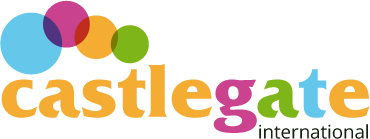“Leaders understand the ultimate power of relationships.” — Tom Peters

Are you leading Millennials?
We continue our exploration of the various generations in our workforce and what leaders can do to unlock their potential and adapt their strategies to suit the unique needs of each group. Today, we will shine a spotlight on the workforce’s newcomers: Generation Y or as they are more commonly known—Millennials.
Generation Y is comprised of those born in the last two decades of the 20th century. This generation grew up adapting to rapidly-evolving communication technology and is typically better educated than generations past. While Millennials can seem entitled and less traditional, they also have a deep desire to leave their mark on the world and to find their work meaningful. As a leader, your job is to find ways to unlock their potential by providing the right environment, tools and motivation.
Today, we offer five of the most important keys to unlocking their potential.
1. Facilitate Work-Life Balance
At face value, these young workers can look like they are less invested in their work. The truth is that they value their work and the independence it affords them; but they also value other aspects of their lives such as traveling and spending more time with friends and family. Although Millennials try to make everything fun, they also consistently meet and even exceed their bosses’ demands. Managers who understand this can use deadlines and time off to motivate employees.
2. Give them options.
Having grown up with endless options for just about everything, Generation Y likes flexibility. This generation lives in a web of connections and tends to draw blurred lines between work and fun. While they are not averse to putting in additional work time from home, they also don’t hesitate to take a long lunch break to take care of personal business. Giving them the chance to set their own hours and/or telecommuting (if possible) is very valuable to them.
3. Open doors (and windows, if necessary).
Millennials respond very well to mentoring and consistently seek out growth opportunities. Although they are less likely to stick to one job or organisation their entire professional lives, they are more likely to be retained if they receive training and coaching. Internal growth opportunities that are skill-based rather than tenure-based are another great way to keep them engaged, motivated, and competitive.
4. Embrace their Diversity.
Millennials are bringing vast diversity to the workplace—from gender, ethnicity, and socio-economic backgrounds, to areas of formal training. This also means that their needs vary among individuals more than ever before. This generation is looking for intangible benefits that suit their diverse lifestyles—be it childcare for working parents or healthy eating options in the office cafeteria. Such benefits help them feel wanted and increase employee engagement and retention. In fact, benefits that suit the specific needs of employees can be a more effective way to retain talent than financial incentives.
5. Keep the Feedback Faucet Flowing.
This generation responds best to immediate and constructive feedback. They are less concerned about norms than they are about speed; and are happy to sacrifice traditional modes of communication for the immediacy of informal communication such as email, instant messenger or impromptu meetings. Thus Millennials value managers who are honest, candid, and are quick to appreciate their success or course-correct them in real-time.
Working with Millennials can mean that older managers have to adapt to new perspectives; but the skill and knowledge that most Millennials bring to their workplaces is often worth the effort. Using their familiarity with social networking and technology to hold them accountable for their work while being flexible and maintaining a friendly rapport, can often be the difference between employee engagement and attrition.
However, always keep in mind that placing people in generic boxes is not always advised or effective—many times it really is about personalities and individual differences.
Do you have Millennials in your workplace? How do they differ from other generations? What unique contributions have they made to your organisation? Contribute to the conversation below.
